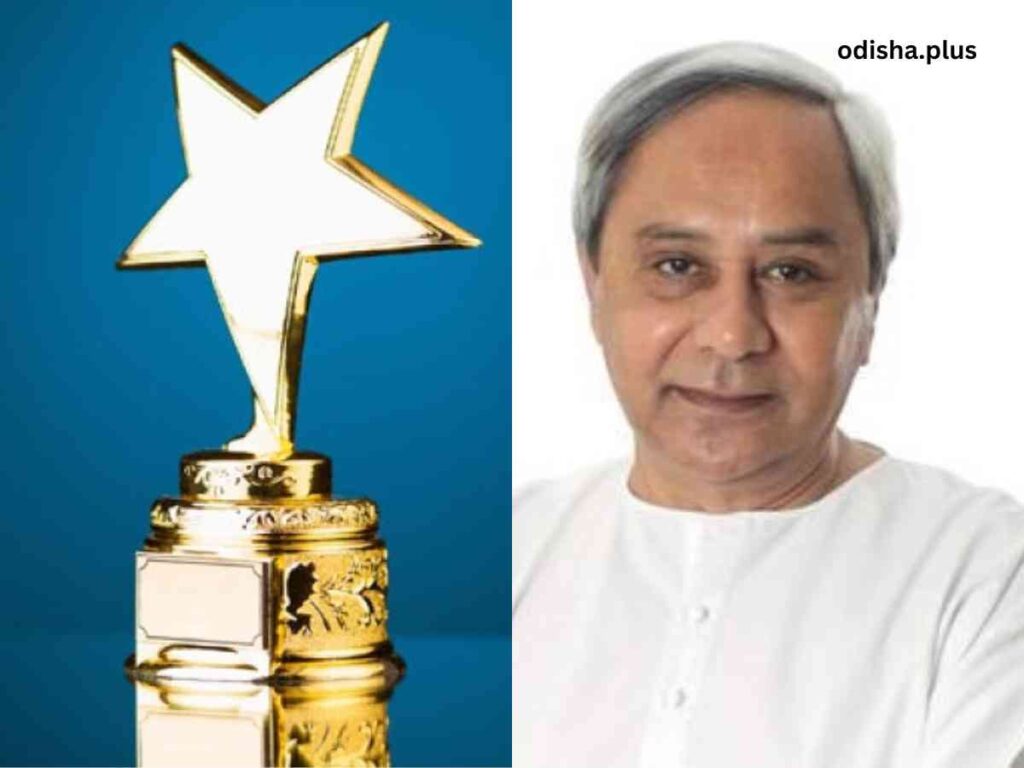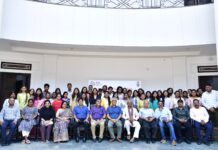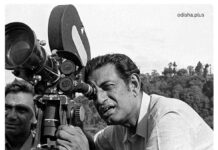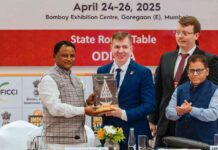The UNESCO Kalinga Science Prize faces a threat as the Department of Science and Technology has decided to withdraw its funding
Bhaskar Parichha

Former Chief Minister and current Leader of Opposition Naveen Patnaik has addressed a letter to Union Minister of Science and Technology Jitendra Singh, urging the continuation of the UNESCO Kalinga Prize. This esteemed international award in the scientific domain was established by the renowned Biju Patnaik in 1952, following a substantial contribution of 1,000 pounds to UNESCO, Paris, from the Kalinga Foundation Trust in 1951.
In his correspondence, Shri Patnaik noted that after the prize reached its 50th anniversary in 2002, during the tenure of then-Prime Minister Atal Bihari Vajpayee, an agreement was made for the Department of Science and Technology of the Government of India, the Odisha government, and the Kalinga Foundation Trust to collaborate as partners and donors for the prize, sharing the associated costs in a ratio of 6:4:4.
“However, I am now pained to learn that the Ministry of Science & Technology, Government of India has decided to stop supporting this prize,” he said in his letter.
The former Chief Minister of Odisha stated that the ‘Kalinga Prize’ represents more than just ‘Odia pride’; it has established a significant legacy for independent India on the global stage. Shri Patnaik described the ‘Kalinga Prize’ as an international accolade that embodies a proud legacy for the people of Odisha, who deeply resonate with it. He requested the personal involvement of Singh to ensure the continuation of the UNESCO Kalinga Prize, emphasizing the importance of honoring the Odia ‘identity and pride’ linked to it.
The History
The Kalinga Prize was founded in 1951 by UNESCO, thanks to a generous donation from the late Shri Biju Patnaik, who was the Founder President of the Kalinga Foundation Trust. The inaugural award was given in 1952, and since then, UNESCO has presented the Kalinga Prize annually to individuals or groups who have significantly contributed to making science and technology accessible to the public.
The selection of the award recipient is made by the Director General of UNESCO, based on nominations submitted by Member States and the recommendations of a four-member international jury. The Kalinga Prize is highly esteemed as a global accolade for exceptional efforts in science communication.
The award aims to recognize the contributions of an individual who has achieved distinction in their career as a writer, editor, lecturer, radio or television program director, or film producer. This individual is expected to have played a significant role in making science, research, and technology accessible to the public. Furthermore, they should possess a deep understanding of how science, technology and research contribute to enhancing public welfare.
To date, the award has recognized 72 distinguished scientists, including seven Nobel Prize winners: Louis de Broglie, Julian Huxley, Bertrand Russell, Karl von Frisch, Arthur C. Clarke, Fred Hoyle, and Sergei Kapitza, among others.
Promotion of Science
The UNESCO Kalinga Prize stands as India’s sole international accolade dedicated to the promotion of science. Over the years, it has gained significant prestige and has come to represent Odia individuality on a global scale.
The Kalinga Prize, as detailed on the UNESCO website, honors the efforts of individuals, institutions, non-governmental organizations (NGOs), or other entities that have significantly advanced the popularization of science and technology. This award recognizes those who have effectively communicated scientific and technological concepts to the public, thereby helping to bridge the divide between science and technology. The popularization of science can encompass various forms of media communication.
Recipients are expected to possess a deep understanding of how science, technology and research contribute to enhancing public welfare, enriching national cultural heritage and addressing contemporary global challenges. The award consists of a cheque for the amount of the prize USD 40,000, an award certificate, and the UNESCO-Albert Einstein silver medal. The laureate will also receive the Kalinga Chair as established by the Government of India (Department of Science and Technology) which comprises a certificate and cash award of USD 5,000.
Indian Engagement
The award recipient, as the website declares, will receive an invitation to travel to India, with travel and accommodation expenses covered by the Government of India, for a tour lasting between two to four weeks. During this time, the laureate will have the opportunity to engage with scientists and science communicators. The Prize-winner will be provided with suitable resources to gain insights into Indian life and culture, as well as to explore Indian research and educational institutions, along with the advancements in India’s industry and economy.
Furthermore, the laureate will have the chance to visit Indian universities and participate in meetings organized by India’s scientific societies, especially those affiliated with the Indian Science Congress Association. While in India, the Prize-winner will be expected to deliver lectures in English and engage in discussions to showcase recent advancements in science and technology, along with the social, cultural and educational implications of contemporary science.
(The author is a senior journalist and columnist. Views expressed are personal.)





















